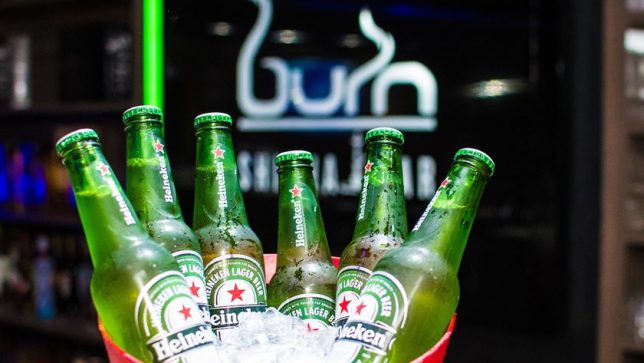Many brands of beer and wine sold in the U.S. contain the weedkiller glyphosate, the main ingredient in Roundup, according to a new report by CALPIRG Education Fund. In their new report, Glyphosate Pesticide in Beer and Wine, CALPIRG tested 20 beers, wines and hard cider, including several organic brands, for glyphosate and found that all but one contained the harmful chemical.

This revelation comes on the same day a San Francisco court begins hearing arguments in the first federal civil case over whether Monsanto’s Roundup weedkiller causes cancer.
Glyphosate Residue Free Certification for Food Brands – Click Here
Test Your Food and Water at Home for Glyphosate – Click Here
Test Your Hair for Glyphosate and other Pesticides – Click Here to Find Out Your Long-Term Exposure
“When you’re having a beer or a glass of wine, the last thing you want to think about is that it includes a potentially dangerous pesticide,” said CALPIRG Education Fund’s Laura Deehan. “No matter the efforts of brewers and vintners, we found that it is incredibly difficult to avoid the troubling reality that consumers will likely drink glyphosate at every happy hour and backyard barbecue around the country.”
Sustainable Pulse note: CALPIRG used the ELISA testing method for this research, which is not the Gold Standard method, so the levels in the research should be treated with care, however there is no reason to doubt the positive results. See more on things you need to know about Glyphosate testing here.
CALPIRG tested five brands of wine, 14 beers and one hard cider for the study. The wine brands were Barefoot, Beringer, Frey (organic), Inkarri Estates (organic), and Sutter Home. The beers examined were from Budweiser, Coors, Corona, Guiness, Heineken, Miller, Peak (organic), Sam Adams, Samuel Smith (organic), Sierra Nevada, Stella Artois, Tsingtao and New Belgium. Ace Perry Hard Cider was also tested.
Of particular note, the study found that, despite weed killer products like Roundup being prohibited in the making of organic beers and wines, glyphosate was discovered in three of the four organic alcoholic beverages tested.
The Brewers Association, which certifies small independent and craft beers, said in a statement: “Brewers do not want glyphosate used on barley or any raw brewing material, and the barley grower organizations have also come out strongly against glyphosate.”
The amount of glyphosate discovered in the samples ranged as high as 51 parts per billion (ppb) in Sutter Home wine and more than 25 ppb in non-organic beers from Budweiser, Coors, Corona, Miller and Tsingtao. The organic drinks were found to have totals as high as 5.2 ppb. While these numbers are below the EPA’s risk tolerances for beverages, at least one previous scientific study found that as little as one part per trillion of glyphosate can stimulate the growth of breast cancer cells and disrupt the endocrine system.
“Craft brewers pride ourselves on producing the highest quality products for our patrons, and that necessitates the use of the highest quality, safest ingredients,” said Elan Walsky, who is co-owner of Coalition Brewing in Portland, Oregon. “Maintaining this high standard of excellence is not only important for our beer and our health, but also for the local community from the farmers who grow our hops and barley, all the way down to the people enjoying our beer.”
With the findings indicating glyphosate contamination is common in over-the-counter beers and wine, the report recommends that, unless it can be proved otherwise, the pesticide should be banned in the U.S. due to its many potential health risks and ubiquitous presence in food, water and alcohol.
“With a federal court looking at the connection between Roundup and cancer today, we believe this is the perfect time to shine a spotlight on glyphosate,” Deehan said. “This chemical could prove a true risk to so many Americans’ health, and they should know that it is everywhere — including in many of their favorite drinks.”



















The corporate responses were hilarious and the typical B.S. The truthful answer from an organic brewer would be “We do our best to provide a clean product, but glyphosate is so pervasive in the environment that it’s impossible to eliminate it completely from our beer.”
The truthful answer from a non-organic brewer would be “We don’t give a crap what’s in our product. The people who drink it are ignorant of good health and are going to get sick and die young anyway.”
I guess, I will have to stop drinking all beer, non-organic and organic. I will stick with distilled water and Hexagonal water.
www.epa.gov/ground-water-and-drinking-water/national-primary-drinking-water-regulations
Good reference for the contamination allowed in our drinking water.
Glyphosate is listed as 0.7 ppm